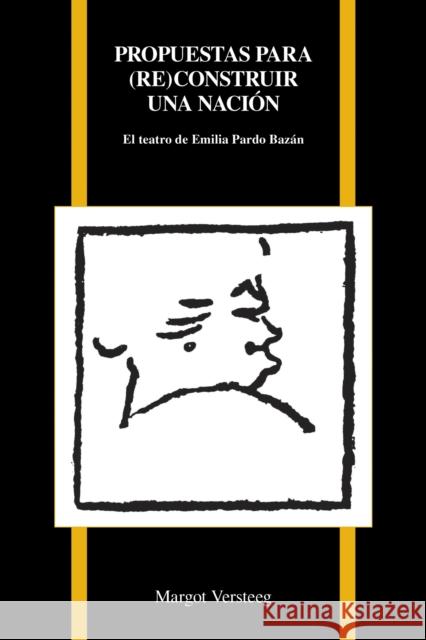Propuestas par (re)construir una nacion: El teatro de Emilia Pardo Bazan » książka
Propuestas par (re)construir una nacion: El teatro de Emilia Pardo Bazan
ISBN-13: 9781557538482 / Hiszpański / Miękka / 2019 / 344 str.
Propuestas par (re)construir una nacion: El teatro de Emilia Pardo Bazan
ISBN-13: 9781557538482 / Hiszpański / Miękka / 2019 / 344 str.
(netto: 167,24 VAT: 5%)
Najniższa cena z 30 dni: 168,98 zł
ok. 30 dni roboczych
Bez gwarancji dostawy przed świętami
Darmowa dostawa!
Propuestas para (re)construir una nacion explores how Emilia Pardo Bazan (1851-1921) imagines and engenders the Spanish nation in her theatrical production staged and/or published between 1898 and 1909. In the aftermath of Spain's colonial losses, when Spain's male authors, in a growing mood of collective introspection, directed their attention to the homeland, Pardo Bazan generated a series of theatrical proposals to revitalize the nation. In her plays, she manifests her ideas about Spain's fin de siecle crisis, reflects on Spain's place in the international arena (emphasizing the nation's civilizing mission), critiques the intoxicating power of the so-called golden legend (Spain's glorious past), and sees the origin of the nation's hardship in the lack of education of its inhabitants and in the inequality between men and women. Pardo Bazan's vision of Spain is forward looking,and she imagines a future in which new social configurations will be possible. Instead of locating her plays in an ancestral Castile, she situates several ofher works in her native Galicia. For the author, Spain's regional issues are inseparable from the country's national issues and these can all be traced back to the woman question. The playwright appeals to the spectators/readers' reasonand emotions in order to let them think and feel that the problems the nation faces can all be attributed to the Spanish men. For Pardo Bazan, Spain's potential for national regeneration resides in the inner strength of women. In cross-fire with the main male players in the literary field of her time, Pardo Bazan offers her critique of national decadence in plays that cleverly subvert a broad range of by then outdated theatrical conventions, and that introduce the public to new currents of theatrical innovation (Ibsen, Maeterlinck, d'Annunzio). Propuestas offers a new perspective on the participation of female authors in the contentious debate about the Spanish nation. Pardo Bazan's theater is an overlooked area in the author's extensive creative production, and Propuestas challenges the so often repeated topic of the backwardness of the Spanish stage and the alleged lack of innovation during the fin de siecle.











